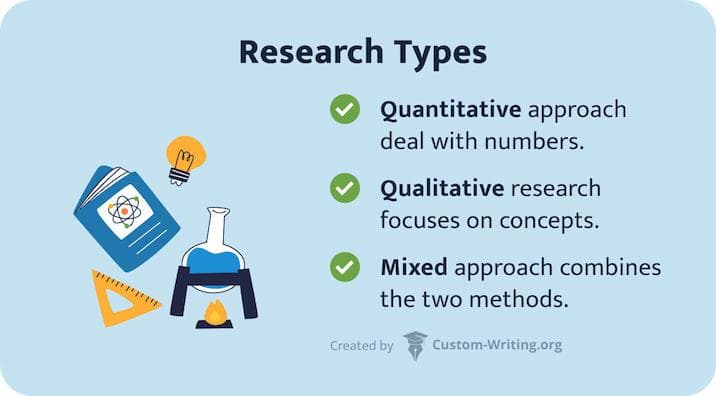Research Paper Generator: Free + Intuitive
Writing a research paper is one of the most challenging objectives you’ll encounter during your studies. With the help of our research paper generator, you’ll be able to complete this assignment quickly and easily. Let’s see how it works!
✅ Free Research Paper Generator: How to Use
- Choose your assignment type.
- Type in your topic.
- Indicate how many body paragraphs you need.
- Press “Generate” and receive your perfect research paper just like that.
🏆 What Is the Best Free Research Paper Generator?
With many other AI research generators online, you might wonder, "Why pick this one?”
Well, that’s because our tool is truly the best! It has every feature of a perfect research paper generator:
| 👍 Accessible | It’s free, limitless, and doesn't require registration. |
|---|---|
| 🚀 Advanced | Our generator is based on a powerful GPT language model. |
| 💡 Customizable | You can choose the number of paragraphs for your paper sample. |
| 📚 Informative | We provide additional tips to help the potential user. |
All of these benefits are included in our GPT-powered tool. So, why not try it right now?
🔬 What Is a Research Paper?
A research paper is an academic work where you provide an in-depth analysis or interpretation of something. Writing a research paper involves expanding your existing knowledge on the topic and purposefully incorporating the expertise of other people who studied it.

The research itself can be quantitative or qualitative:
- Quantitative studies use data that is countable, measurable, and dependent on numbers.
- Qualitative research is descriptive and rooted in interpretation.
Some research papers use a mixed approach combining qualitative and quantitative methods.
Did you know our generator can create research paper samples using any of the above methods? Try it now, and see for yourself!
✍️ How to Write a Research Paper
So, how can you write an outstanding research paper? Check out our handy step-by-step guide below!
1. Get Ready
Before you start writing, you should choose a topic, conduct preliminary research, and build a roadmap for your paper.
When looking for a good topic, follow these tips:
- Pick something you find interesting.
- Scan how much information is available on the chosen topic.
- Avoid topics that are too obvious or complicated.
After you’ve picked a research topic, it’s time to do some digging. For that, go through scientific literature and recent publications. It’s a good idea to use various types of sources, from scholarly articles to books. Make sure to write down any important information in your notes.
Once you’ve learned enough about your topic, you can create an outline. It will serve as a roadmap for your research paper. In your outline:
- Include the key findings and your thoughts on the subject.
- Group the information logically.
- Discard everything you find redundant or irrelevant.
2. Write a Thesis Statement
Using the collected information, write a concise, well-defined thesis statement. To do it, formulate your topic as a question and answer it. This answer will be the key sentence that will determine your work's overall structure and flow.
💡 Pro Tip: Using a thesis generator will help you ace this task.
3. Do the Research
Now, it’s time to conduct your research. While doing it, note the sources of all important information. We also recommend to avoid relying too much on online encyclopedias. They are more likely to contain misinformation than peer-reviewed articles.
After gathering enough data, do the following:
- Expand your outline with details and examples.
- Conduct additional research if necessary.
- Modify your thesis statement to represent your findings more accurately.
4. Draft Your Paper
Once you're done researching and unraveling your thesis, you can start making the first draft. We recommend writing the main body first. Then, you can revise it, add more specifics, and complete the remaining parts.
5. Write the Final Draft
Now, you’re ready to make the final draft. The following checklist will help you ensure everything is perfect:
- Have you appropriately cited the sources?
- Does every citation follow the proper format?
- Does each paragraph focus on a single topic?
- Have you achieved the primary goal of your research?
- Did you include all the necessary paragraphs?
- Are your arguments logically connected?
6. Proofread and Edit
Finally, proofread your work for grammar, punctuation, appropriate word choice, seamless transitions, sentence structure, and variety. If possible, give yourself a few days after finishing your final draft before making any edits. Doing so will allow you to notice more things and proofread more thoroughly.
🏅 Winning Tips for Research Paper Writing
Want to take your research to the next level? Check out our helpful tips below:
- Always consider your target audience. Adapt your vocabulary and writing style to your readers' degree of experience and understanding. It's best to refrain from employing technical phrases or jargon your audience might not understand.
- Provide definitions for key terms. This way, your readers will understand your research better.
- Employ an active voice. This will make your essay more readable. For instance, instead of writing "the experiment was conducted by the researchers," state "the researchers conducted the experiment."
- Ask for feedback. Have a mentor, professor, or friend review your writing. They can provide insightful advice and recommendations for enhancing coherence and clarity.
And here’s our final tip: use our free research paper generator to get inspiration for your next project! It can assist you with research on any topic absolutely free of charge.
We also recommend using our abstract creator and transition phrase generator to enhance your writing even further.
Updated: